
April seminars
5: Coming to grips with FamilySearch WEA Centre 10:00am
May seminars
3: Coming to grips with FamilySearch WEA Centre 10:00am
5: Pitfalls in family history research Tea Tree Gully Library 10:00am
13: Introduction to FH research – over 7 weeks with sessions of 1.5 hrs WEA Centre 8:00pm
25: Historical snapshots of Marion Marion Cultural Centre 10:30am
27: SA resources for family historians Park Holme Library 10:30am
29: Tracing your Scottish ancestors WEA Centre 6:30pm
30: Tracing your English ancestors from afar Fleurieu Peninsula FHG 10:00am
31: Coming to grips with FamilySearch WEA Centre 10:00am
See the seminar program for more details.
West Torrens Library
Computer PC12 now holds the following data files:
• SA Births 1842–1928
• SA Marriages 1842–1937
* SA Deaths 1842–1915
• SA Pre-civil Registration Births
• SA Pre-civil Registration Marriages
• SA Pre-civil Registration Deaths
• VIC BDM 1836–1913
• VIC Marine BDM 1853–1920
• QLD BDM 1829–1914
South Australian Landowners 1835–1841
This is the latest database produced by Adelaide Proformat and is designed to provide the researcher with a complete listing of all land purchasers in South Australian as extracted from a range of records held by the State Library and State Records of South Australia.
Apart from the name of the purchaser, a range of information about the parcel of land is provided including the date of purchase and the price paid. The material is supported by heritage maps showing the location of each land purchase.
As an added feature the database links references to the same person found in the other databases produced for the same era in South Australia. It is available from Gould Genealogy.
News
April seminars
May seminars
West Torrens Library
South Australian Landowners 1835-1841
Feature article
Accessing State Records of South Australia
![]()
Adelaide
Proformat
5 Windana Mews
Glandore SA 5037
Australia
Tel: +61 8 8371 4465
Fax: +61 8 8374 4479
proformat@jaunay.com
Services
• Research
• Drafting charts
• Locating documents
• Seminar presentations
• Writing & publishing
• SA lookup service
• Ship paintings
Proformat News acknowledges the support by ![]() AWE
AWE
State Records of South Australia is a government archive and as such the user needs some understanding of how an archive works to use it effectively.
The role of an archive is to preserve the records and in the case of State Records of SA (hereafter SRSA) this is the records generated by the state government and its predecessor, the colonial government. Although in the latter case there are a few anomalies in regard to SA that will be addressed later.
Archives store their records according to the group that generated the material and this can mean some problems for family history research that is focussed on people rather than departments. You need to put yourself in the shoes of your subject and consider which government agencies the person may have had dealings with and then search their records. Not all records are available—some were never deposited and considered lost, some are still active and with their department, some were purposely destroyed or have been subjected to sampling, and some have access embargoed for a range of reasons.
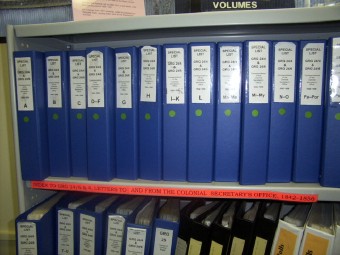
Most government archives, and SRSA is no exception, are under funded and therefore locating the records can prove difficult if not time consuming as you will often find no specific indexing available and that means lengthy searching through material without any guarantee of a result. You will often find indexing available for the more popular series of records. At SRSA these are called Special Lists and can be located in the library area in large blue binders.
The other problem is that each series has a description of its contents and users have to rely heavily on these in the absence of indexes. Many series descriptions lack expected detail simply because no one has trawled through the contents in sufficient detail to determine the material therein. I recall a researcher discovering a long lost SA colonial Electoral Roll stored within a series of records deposited many years previously by an agency.
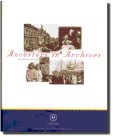 Essentially the greatest issue you will have is not so much the lack of
indexing of records as the lack of descriptions of the content held in the
various series. The staff of SRSA supported by volunteers are working hard
to improve these two matters but as you can imagine the undertaking for
many kilometres of shelves of records will take a very long time and meanwhile
the staff have to address the newly arriving material.
Essentially the greatest issue you will have is not so much the lack of
indexing of records as the lack of descriptions of the content held in the
various series. The staff of SRSA supported by volunteers are working hard
to improve these two matters but as you can imagine the undertaking for
many kilometres of shelves of records will take a very long time and meanwhile
the staff have to address the newly arriving material. SRSA, like many other similar organisations, has published a useful guide for family historians, Ancestors in Archives, and beginners are urged to consult this book to plan their approach to researching the records. This reasonably priced book is a worthy addition to any SA researcher's library. The book covers the following topics and alerts users to the associated record series:
•
Coronial matters |
• Insolvency • Land management • Licencing • Law enforcement • Military • Naturalisation • Public cemeteries |
• Public servants • Public utilities • Schools • Shipping records • Social welfare |
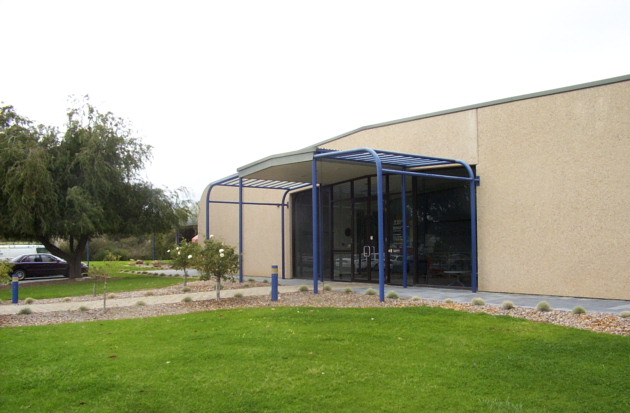 SRSA
operates two reading rooms that are open to the public 9:30am to 3:30pm
Tuesday to Friday. The city room is at 26-28 Leigh Street and is convenient
for users of public transport as Adelaide is a city where the bulk of services
radiate out from the city. The main reading room is co-located with the
collection at 115 Cavan Gepps Cross (pictured). This is a difficult place
to visit using public transport as it is a very long walk along high speed
roads with no footpaths. The former is a satisfactory place to use as long
as the researcher knows in advance exactly what records they wish to use
and have a reading card so that they can pre-order their material online
before a visit. Unfortunately much research is an evolving process as one
finding leads to a new record and as such many researchers find it necessary
to use the remote (for all but northern suburbs residents) Gepps Cross reading
room. It takes at least half a day for a record to be delivered to the city
reading room, whereas the Gepps Cross reading room the wait rarely exceeds
15 minutes. Some large, heavy and/or fragile items can only be viewed at
Gepps Cross. As a bonus Gepps Cross is open on the first Sunday of the month
11:00am to 5:00pm.
SRSA
operates two reading rooms that are open to the public 9:30am to 3:30pm
Tuesday to Friday. The city room is at 26-28 Leigh Street and is convenient
for users of public transport as Adelaide is a city where the bulk of services
radiate out from the city. The main reading room is co-located with the
collection at 115 Cavan Gepps Cross (pictured). This is a difficult place
to visit using public transport as it is a very long walk along high speed
roads with no footpaths. The former is a satisfactory place to use as long
as the researcher knows in advance exactly what records they wish to use
and have a reading card so that they can pre-order their material online
before a visit. Unfortunately much research is an evolving process as one
finding leads to a new record and as such many researchers find it necessary
to use the remote (for all but northern suburbs residents) Gepps Cross reading
room. It takes at least half a day for a record to be delivered to the city
reading room, whereas the Gepps Cross reading room the wait rarely exceeds
15 minutes. Some large, heavy and/or fragile items can only be viewed at
Gepps Cross. As a bonus Gepps Cross is open on the first Sunday of the month
11:00am to 5:00pm.A Readers Card is necessary to use the services provided by SRSA and on the first visit make sure you have photo ID.
The duty archivist and other staff are available to assist users in a range of tasks from assisting researchers to locate and order records to offering search strategies and explaining how to use the finding aids available.
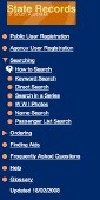 SRSA
maintains a web site that plays an important role in accessing the records.
Once a user has a Readers Card, the the web site is the appropriate way
to pre-order records for viewing. The site offers a menu of searching facilities
(pictured) to locate records according to the information already held by
the searcher. The Keyword Search facilitates a search for the words
that have been used in the catalogue to describe the records. One can search
across series titles, series descriptions, agency description and date ranges
for records. The button labelled Search in a Series allows for
the search for keywords within a particular series when the series ID is
already known. This method is useful to locate a single file within a series
when that information is available. When the ID number of a particular series
is already known then a Direct Search is appropriate. The Name
Search option allows the search of special lists and indexes for entries
relating to individuals, but remember that not all record series have special
lists and not all records have been indexed. A special index, Passenger
Lists, allows you a search the Official Passenger Lists of Emigrants
Selected by the Colonization Commissioners 1845-1886 (GRG 35/48/1)
by either the name of the passenger or the name of the ship. A similar choice
is available for searching WW1 Photos, the photographs of soldiers,
sailors and nurses (GRG 26/5/4).
SRSA
maintains a web site that plays an important role in accessing the records.
Once a user has a Readers Card, the the web site is the appropriate way
to pre-order records for viewing. The site offers a menu of searching facilities
(pictured) to locate records according to the information already held by
the searcher. The Keyword Search facilitates a search for the words
that have been used in the catalogue to describe the records. One can search
across series titles, series descriptions, agency description and date ranges
for records. The button labelled Search in a Series allows for
the search for keywords within a particular series when the series ID is
already known. This method is useful to locate a single file within a series
when that information is available. When the ID number of a particular series
is already known then a Direct Search is appropriate. The Name
Search option allows the search of special lists and indexes for entries
relating to individuals, but remember that not all record series have special
lists and not all records have been indexed. A special index, Passenger
Lists, allows you a search the Official Passenger Lists of Emigrants
Selected by the Colonization Commissioners 1845-1886 (GRG 35/48/1)
by either the name of the passenger or the name of the ship. A similar choice
is available for searching WW1 Photos, the photographs of soldiers,
sailors and nurses (GRG 26/5/4).Other records
Readers are reminded that a number of records one would expect to find at SRSA are in fact held by the National Archives of Australia and need to be accessed by attending the Adelaide office at 78 Angas Street. These records relate to colonial government departments that transferred to the new Commonwealth Government in 1901:
•
Customs |
• Maritime • Meteorology • Post and telegraph |
• Property and works • Trademarks and patents |
An original land record relating to land within Kingscote on Kangaroo Island:
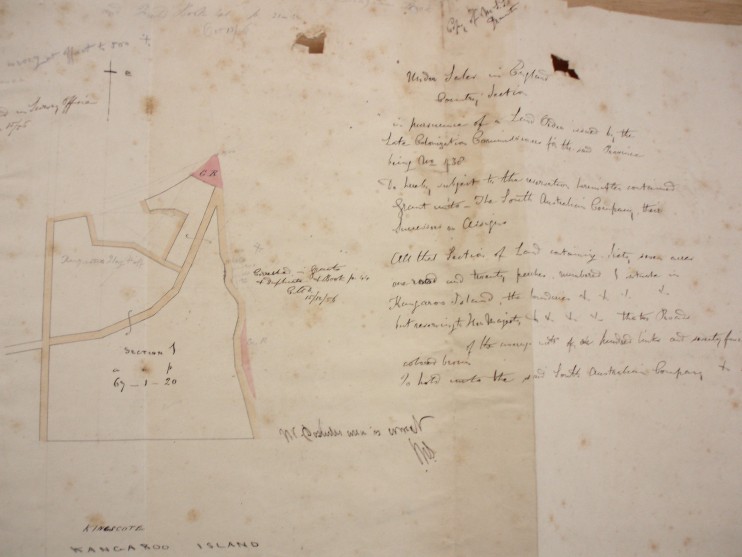
newsletter-leave@jaunay.com